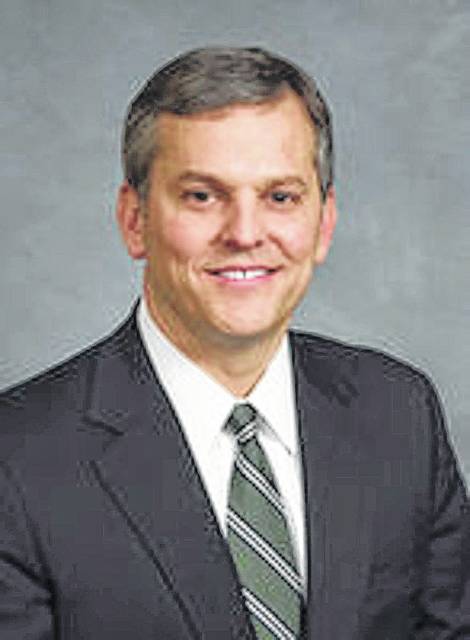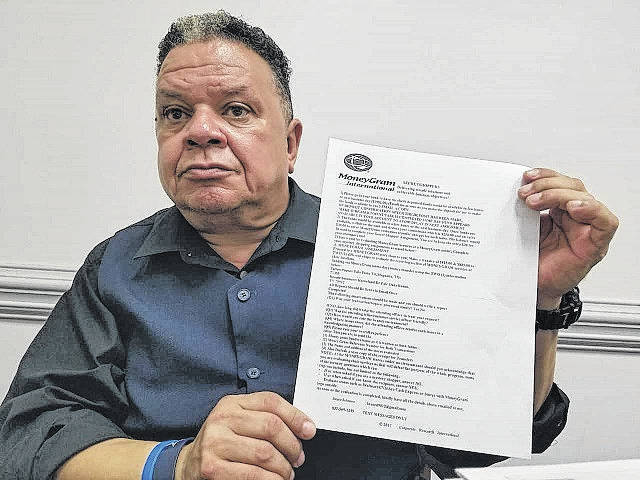HAMLET — When Lawrence Dye received a check in the mail for $1,982, he was immediately skeptical.
The check came along with a page of instructions for being a secret shopper with what appears to be a photocopied MoneyGram International logo in the top left corner.
Those instructions started with depositing the check and emailing Bruce Johnson, whose name and email address is at the bottom of the page, a copy of the deposit confirmation.
The next step said for Dye to withdraw $250 for his commission and another $30 for “transport cost.”
The task was to go to two MoneyGram stores and transfer $815 to Terron Payne in Magnolia, Texas and Ronald Solomon in Fair Oaks Ranch, Texas and then file an evaluation report on the transfer experience.
“I knew it was a scam all the time,” said Dye, who has a certificate of completion in executive protection from ESS Global Corporation, a Florida-based security company. “When you first see something, you can tell it’s a scam.”
The check, he added, was the first giveaway.
“People just ain’t going to send that kind of money,” he added.
Dye said he took the check to the bank, just to confirm it was fraudulent.
He also reported the scam to the Richmond County Sheriff’s Office.
“The mail schemes are still going on,” said Chief Deputy Mark Gulledge. “The best thing to do is not cash any checks that you did not know were coming to you.”
Gulledge also warns that potential victims should not call the listed numbers back, because scammers can still get certain personal information that way.
Listed at the bottom of the page along with an email address for Bruce Johnson was a phone number with “TEXT MESSAGES ONLY” off to the side.
However, Dye said he did call the alleged scammer back and told him it had been reported.
Because of scams using its services, MoneyGram International founded scamawareness.org, “a non-profit organization dedicated to educating Americans about scams and helping them to avoid becoming victims of fraud,” according to its website.
“At MoneyGram, few things make us more angry than when people use money transfer services to deliberately defraud our consumers,” the fraud prevention page of the company’s website reads. “The most important tip we can give is, do not send money to someone you do not know.”
Dye said he wanted to make other Richmond County residents aware so they don’t fall victim to a similar scam.
According to the N.C. Attorney General’s Office, there have been 47 complaints filed regarding secret shopper scams since August.
“The availability of high-tech printers and graphic design programs mean that crooks can now make very convincing counterfeit checks,” Attorney General Josh Stein said in a statement to the Daily Journal. “If you receive a check out of the blue with a deal that sounds too good to be true, it probably is. Cashing the check may also create problems for you.”
Anyone with doubts is encouraged to call Stein’s office at 1-877-5-NOSCAM or file a complaint at ncdoj.gov/complaint.
Reach William R. Toler at 910-817-2675.


